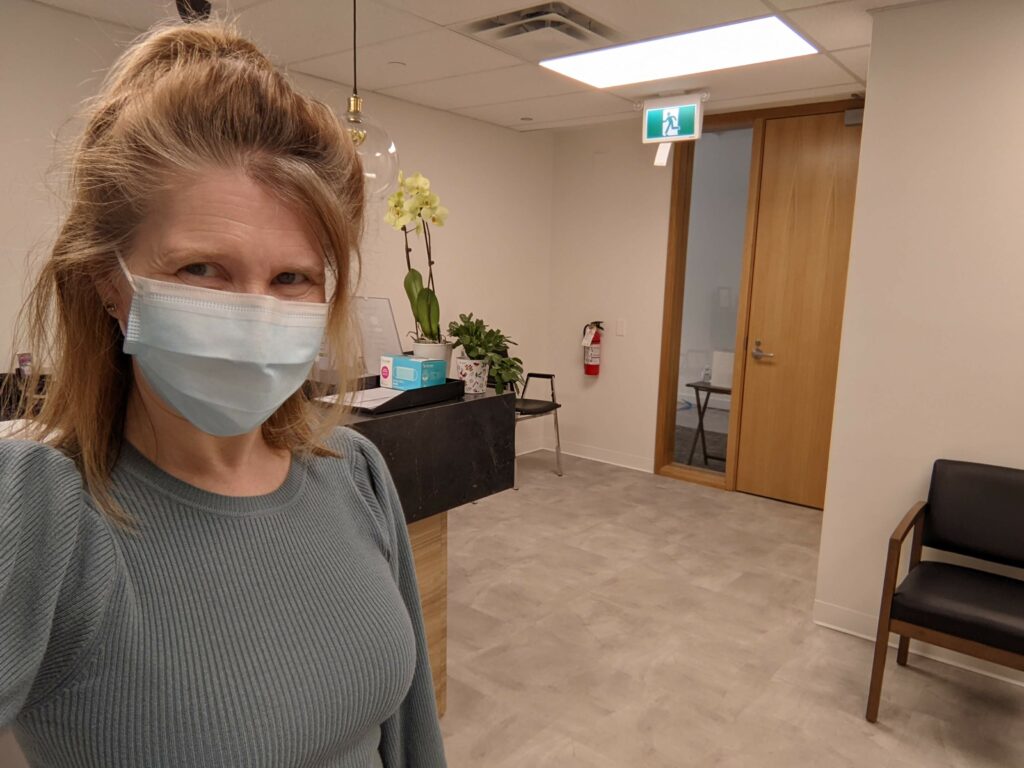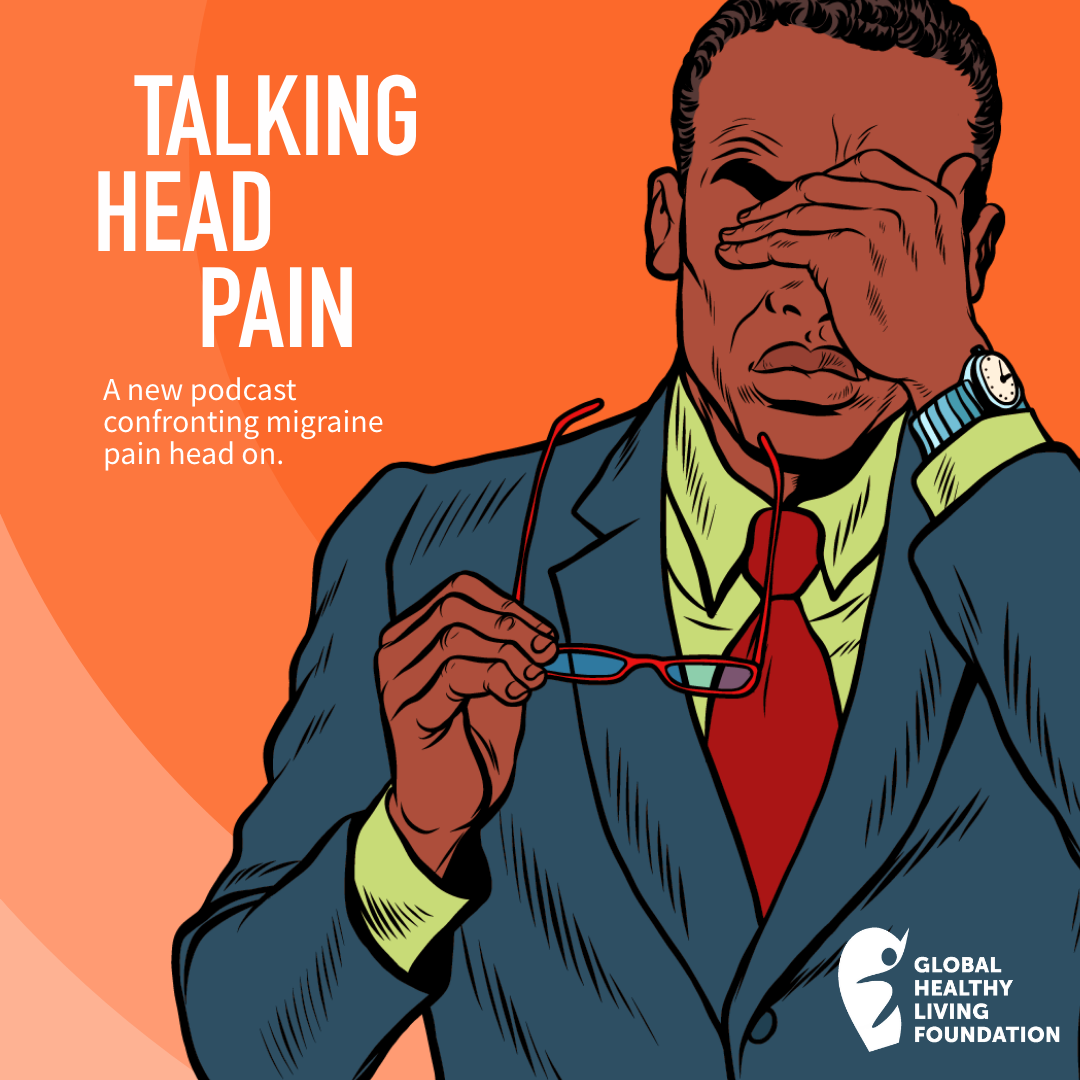The audience is flipping through their programs waiting for the house lights to dim. They’ve been waiting months to see this show. Ushers are seating the last few people just as the announcement comes on to turn off cell phones and other electronic devices. The curtain parts and the lights come up to reveal a set of an upper-class sitting area. An actress sits in a chair by a fireplace reading a book.
For a moment, you feel as if you are looking through the window of someone’s home — this is the illusion, the finished picture. What the audience doesn’t see is the stage manager in the wings, the costume and make-up artists in the Green Room, the technicians in the sound and lighting booth, the set builders and the people managing props behind the proscenium. There’s so much happening behind the curtain to create what you see in front of you.
Similarly, all that work happening behind the scenes is what patients don’t see in the medical office.
As a health care worker in British Columbia, and also a patient living with rheumatoid arthritis, I am in a unique position to provide some insight on how the process works in getting that first appointment with a rheumatologist, being referred to tests in the hospital, and those life-changing surgeries.
Being a patient waiting for answers can be discouraging because it feels like you’re walking around in a dark room — well, let’s shed some light on what is happening behind the scenes so you can navigate the best way to advocate for yourself.
You booked an appointment with your family doctor or general practitioner (GP) because you’ve been experiencing an onset of new symptoms — joint swelling and stiffness, pain and fatigue; maybe you feel slightly feverish as though you’re coming down with something. You improve as the day wears on, but you wake up feeling the same way the next morning. This was how RA presented itself for me.
Your doctor will ask you questions about your symptoms and do a physical exam to try and determine a potential diagnosis. The clearer you are in describing what’s happening, the easier it will be to determine the next step. Once they decide on a referral to a rheumatologist, they will usually give you some lab work and possibly take an X-ray.
The doctor will then write a letter to the rheumatologist outlining what they suspect, and their medical office assistant (MOA) will send it to the rheumatologist’s office. You are now on a wait list for an appointment with a rheumatologist.
Tips for Getting a Diagnosis and Proper Treatment
Rheumatologists will review all referrals, triage for urgency, and book accordingly — you may not be the most urgent patient (even if you feel you are), but here’s what you can do to try and move things along.
Do the tests your GP orders
Sometimes specialists hold off on bookings until all results are in — otherwise it’s a waste of an appointment. It will take longer to diagnose and begin treatment if the specialist has to spend time to order the same tests your GP initially did.
Don’t leave multiple messages
Follow up with a polite message to the specialist’s office asking to be placed on a cancellation list, but please don’t leave multiple messages.
Office staff have an overwhelming amount of work. I was the only employee running a clinic and trust me when I say we’re not ignoring your call or dismissing your concerns. We do more than just answer a telephone. We run the office, do the scheduling for the doctor, patients, residents and nurses; we do the medical billing, fax, file, edit and type letters. We keep patient records, find test results, clean rooms, order supplies, and sometimes, go to the ladies’ room. Be kind to your MOA. We are juggling a lot of plates.
Be patient
Medical offices and hospitals are a business — we often forget that. Working in health care is demanding. It’s just as hard on the medical professionals as it is on patients, so “patience” needs to go both ways.
Our medical system is overwhelmed with COVID, flu, and RSV — staffing issues include illness and burnout, and other external factors such as vacations and injury. The staff in medical clinics are not immune to injury and illness — and neither is the specialist. You need to be patient.
I know it’s not easy when you’re suffering but our medical system is doing its best with what we have. If symptoms worsen while you’re waiting, go back to your GP or go to an urgent care centre — they can write a new note to the specialist summarizing what has changed and ask them to see you sooner. They can also provide some pain relief in the interim.
Use your connections
If you know people working in the system, graciously ask them if your referral can be reviewed sooner or moved up in the queue. There’s no shame in this. Make friends with the front office staff — they are your first and most important contact for queries and appointments.
Do some research on the suspected diagnosis
There’s a difference between an inflammatory autoimmune type of arthritis (RA) vs age, and wear and tear osteoarthritis (OA). RA requires aggressive treatment. OA is not an autoimmune disease, and although it can be just as challenging, it is managed differently.
The more information presented at the appointment, the sooner a diagnosis can be made.
Come to the appointment prepared
The more prepared you are the smoother the appointment will go. Come prepared with a medication list and questions to ask, know your health history and surgeries — write it all down. Administrative staff doesn’t have time to field multiple questions you forgot to ask during your appointment.
Understand your coverage
Once you’ve been diagnosed and discussed treatment options, research how coverage of medications works in your area. In British Columbia, certain medications are partially covered through a branch of government called Pharmacare. Private insurance can be used to cover the difference.
You will likely have to go through different treatment options before finding the right one. Make sure you know what your private insurance covers and how to apply for that coverage. The staff in the medical office will not have the answers to questions about private insurance. Each policy is different, and they are not billed through the medical office.
Try to stay organized
Don’t wait until you’re completely out of your medications. Keep track of your refills (they are labelled on the medication bottles) and call in at least two weeks before you are about to run out.
If the doctor can’t respond to you in time, ask your pharmacist for an emergency supply — they will usually oblige. This also goes for health insurance forms. Be sure to get them in as soon as possible – it will take a couple of weeks at least to get these done. The doctors are not in the office every day — they are rounding in the hospitals, teaching, reviewing results, and in the case of my job, they are working full-time as research scientists.
Make your next appointment at the end of your last one
Rheumatologists and other specialists book up months in advance — if you wait four months to book your four-month appointment, it will likely be eight months before you’re able to be seen again.
Waiting for appointments, surgeries, and diagnostic tests is frustrating, but here’s what the average person doesn’t see: hospital space, technicians, administrative staff, nurses, radiologists, and anaesthesiologists need to be available.
All these things must line up before an appointment can be booked. When outpatient medical offices request tests in the hospital, be patient with staff. Each facility has their own triage protocol and medical offices have no say or control over how long it will take for a facility to book that test. BC has a public health care system, but if you don’t want to wait and have the means, you can explore private facilities to expedite those tests.
Ask about communication in between appointments
The doctor is not always available when you have a question. It could take a few days to get the answer from the office. Medical offices are not set up for emergencies and urgent care. Offices have set business hours.
If you’re experiencing an emergency, phone 911 or go to your nearest emergency room or an urgent care centre. Pharmacists and the nursing hotline are your new friends for questions. They are a terrific resource for medication, symptom, and vaccine queries. Pharmacists can advise you on side effects and any contraindications with medications you are taking.
Be polite and respectful
We live in a world of convenience, where information is generated in seconds at the tip of our fingertips and impatience has become an epidemic. Be polite and respectful to health care workers — we have faced the pandemic putting our own health at risk. We are tired. We are burnt out. A little kindness goes a long way, and speaking for myself, I will do whatever I can to help you if you are considerate in your request.
In most cases, you are not being dismissed or forgotten. The medical system is not perfect, every medical office runs a little bit different. It’s in a constant state of rehearsal, and there will always be bumps along the way, just like when an actor forgets their lines onstage or a sound cue is missed, but somehow or other we will always manage to find our light.
Stay in Touch with CreakyJoints Canada
Part of the nonprofit Global Healthy Living Foundation, CreakyJoints is a digital community for millions of arthritis patients and caregivers worldwide who seek education, support, advocacy, and patient-centered research. All of our programming and services are always provided free of charge. As we grow CreakyJoints Canada we want to hear from you. Please join our email list to stay connected, learn about new content and initiatives, and send us suggestions and ideas.






